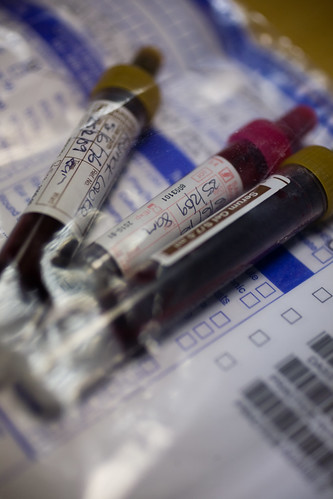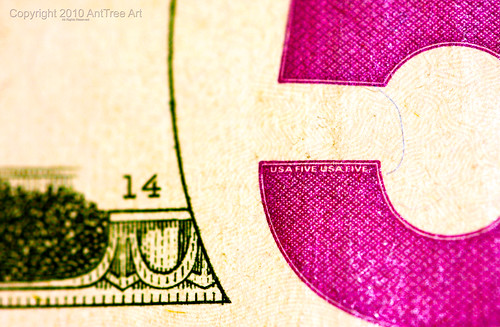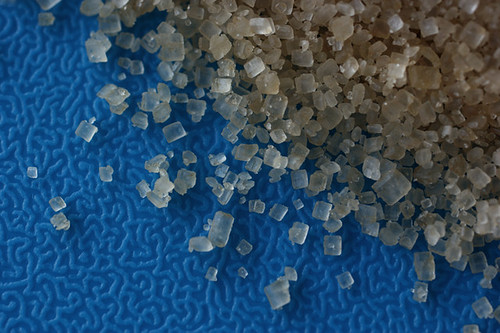(You'll never need to watch the news again. This story has it covered.)
Three weeks into my Spending Diet, I've spent $98.73 less this month so far than I did last year at this time. That makes me happy!
Here are some other changes I've incorporated in recent times that have improved my overall happiness:
- The past stays there. I don't dwell on reliving things that have already happened and I cannot change. That includes old relationships, personal losses, odd hair colors, questionable spending choices... and yes, even the Packers/Seahawks Monday Night Football game. I've learned from past experiences, and I acknowledge them, but I don't dwell on them. My great grandmother used to say, "Don't hold anything you can't hold in your hands." (This rule also applies to bodily functions, I suppose, but I rather like the notion that life is better when you let go and move on.) I'm more excited about the present, what is happening now... and looking forward to what the future brings. Always.
- I filter my news. Watching television news is so ridiculously misdirected and sensationalized these days, that I feel it is one step away from just making shit up. And newspaper companies can actually endorse certain political candidates now? No thanks, I can't trust that information because it may be biased. I try to get my information from the most objective sources possible. I find BBC News and NPR to be better options than much of what is out there. I don't wish to read about every shooting death ever in the nation, the latest celebrity gossip, viral video, or exclusively U.S. news. There's a whole world out there with stuff happening, and it affects all of us.
- I read. I work in a media field. I make videos and watch many movies. I sit at a computer most of the day. It's nice to see those stories unfold with their beautiful HD imagery, but I really like to exercise my imagination and build that imagery myself once in a while. Reading helps me reconnect with that creative flow. It helps bring stillness and quietude, because reading can take place anywhere. Reading doesn't require electricity (if you're still reading those things called "books" in this age of tablets and e-readers). It can be done outside, or on the go, or at work, or in a waiting room, or in a coffee shop, or in a foreign country, or in a bathtub. Reading can be done without disrupting those around you. Reading can also be free, if you have access to a public library. The ability to read is definitely a crucial skill, It's important to keep that muscle working regularly, lest your brain degenerate into only comprehending YouTube videos of animals in outfits. Okay, I agree... those are awesome. But so is reading!
- Slow is the way to go. In the past year, my temper has deflated tremendously. I find getting up a few minutes earlier means I'm not rushing to get out the door on time. It means I'm less likely to forget anything in my frantic rush. It means I don't have to speed and get mad at red lights or other drivers (as often). All of these are beneficial to reducing stress. I've learned to say no to accepting invitations and obligations when my plate is already full. I've learned to cook my own meals, mostly from scratch, and enjoy the added health benefits and satiation that I didn't get from fast food or instant meals. In a culture that constantly seeks instant gratification, it can be difficult to slow down while the rest of the nation speeds by, going "That web site needs to load NOW! This line needs to get shorter NOW! I need that project done NOW! I need to meet my weight loss goal NOW! I need this movie to get to the point NOW! I need to buy that dress NOW!" And they'll try to pull you back in. Once you've experienced a less harried pace, you won't ever go back.
- My priorities are in check. Being rich is not a priority, but having enough finances to cover the lost of living is. Having a supermodel's figure is not a priority, but being healthy is. Owning the latest tech device is not a priority, but quality communication with my loved ones is. Pursuing my passion is a priority, while making my job my life is not. Collecting and possessing things I value is more important than having lots of stuff, new stuff, the trendiest stuff, or the most expensive stuff.
- I accept responsibility. I don't need to prove anything to anyone by what I own, what I do, or how I look. At the end of the day, I'm responsible for my body and what I put into it. I'm responsible for my finances and how I use them. I'm responsible for cleaning, fixing, and storing my stuff, as well as how much stuff I choose to accumulate. I don't go out drinking if I don't want to consume empty calories, pay $10 for cocktails, and feel sluggish in the morning. I don't buy chai lattes at the coffee shop twice a week if I want to save that annual $400+ towards retirement or a vacation or a new furnace. I don't sulk around and blame the job market, the government, the fast food chains, or the cost of inflation. Finger pointing only makes people bitter, it makes them think they don't have responsibility over their own actions, and it isn't productive. Despite setbacks in the economy and in national priorities, I still have the ability to make my own choices in most matters. I do, and I'm happier for that because I can give myself the credit when I see results.
- I treat myself. When I have a night off, I like to take a bubble bath, make single-serve chocolate cake in a mug, give myself a pedicure, listen to records, watch four episodes of "The X-Files" in a row, call up a friend, drink hot cocoa, take a book to the lakefront, visit the cheap seats cinema, or go for a leisurely walk. These are all treats I can give myself that don't cost much. I give myself permission to enjoy a reward because it breaks up the monotony of fulfilling obligations that come with being a fiscally and emotionally responsible adult. It can renew my determination and motivation, and hit that internal reset button.



